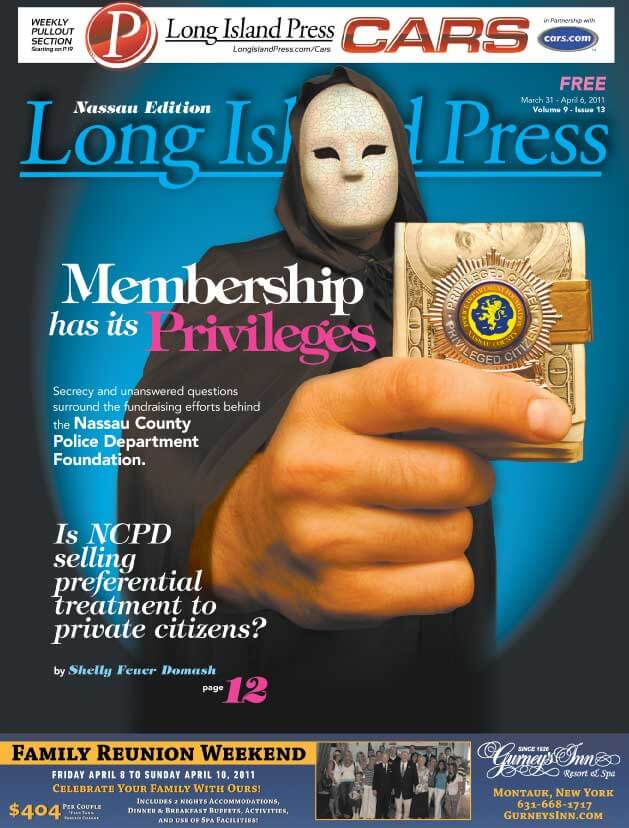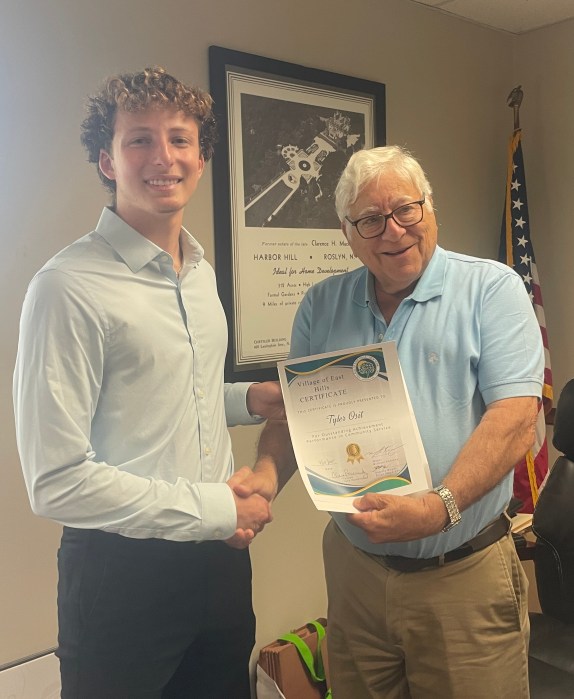Mum’s The Word
Mulvey was a 28-year NCPD veteran who retired in 2001 with the rank of inspector only to return in 2007 when he was appointed commissioner by former Nassau County Executive Tom Suozzi. Current County Executive Ed Mangano kept him on. He spent 11 years in uniform patrol, rising through the ranks, says his official bio, serving in narcotics, auto crime and as hostage negotiations team leader. Prior to his retirement in 2001, Mulvey also served as an assistant to the police commissioner. In that capacity he represented the department in all matters pending before the Nassau County Legislature and was the department’s liaison to the county executive’s office.
Mangano, through his new press secretary (the former Public Information Officer of the Nassau Police Commissioner’s Office) declined to comment for this story.
Mulvey has also served as security site manager at the U.S. mission to the United Nations and he co-founded a private security-consulting firm in Westbury. He also worked as a security contractor for the Homeland Security Department in New York.
To be sure, Mulvey, who is also an FBI-certified hostage negotiator and New York State certified police instructor, has his admirers.

“Commissioner Mulvey is a dedicated leader who provided Nassau County and the State of New York with exemplary service,” says Captain David Candelaria of Troop L of the New York State Police.
Yet as Nassau’s top cop and chief official, the blame and responsibility for these failures falls on him. So do any improprieties concerning the foundation.
Faced with budget cuts and pressures to reduce its spending, the department, similar to others across the country, has had to streamline its operations.
“We are now down 300 officers since 2008,” laments Carver, the PBA union head.
The Nassau County Police Department Foundation was established in 2009 “as a public/private partnership that will provide the financial support to build and maintain a new, state of the art Police Academy for the Nassau County Police Department,” reads the infamous memo.
Among other fundraising pitches, Mulvey outlined details of the new center and fundraising efforts of the Foundation at a June 23, 2010 breakfast networking event of the Long Island Real Estate Group, telling attendees the nonprofit’s two-year private fundraising goal was to raise $25 million for the $48 million, 75,000-square-foot academy, with the balance expected to come from grants and other public sources, according to the New York Real Estate Journal.
The facility would be equipped with state-of-the-art tracking and investigative technology, an auditorium, classrooms, an indoor track and driver-training area, Mulvey said. It would also be the new home of the NCPD’s intelligence division and double as a regional training center.
The NCPD’s current academy is housed within a former elementary school in Massapequa Park and underwent a renovation including the addition of all new equipment in its intelligence center in 2007—and there are five more years on its lease—according to sources within the police department. In comparison, Suffolk’s police academy has been at its present location in Brentwood for 10 years and there’s no intention of building a new facility, according to a police spokesperson who wished not to be named.
There’s no question senior Nassau police officials would benefit from a state-of-the-art facility.
Gary Learned, president of the Superior Officers Association, which represents officers above the rank of patrolman, and also a former police academy instructor, is strongly in favor of a new facility, stressing its importance.
“Officers need a center to train in,” he explains. “Who wouldn’t want a better academy? If the new academy is built with public donations it would certainly be a state of the art academy compared to a retrofitted public school.”
Some, however, such as Thomas Willdigg, president of the Nassau Detectives Association and the New York State Association of PBAs, believe there are bigger issues facing Nassau’s finest at the present moment.
“I think it is a great thing to have a state of the art academy, but we are facing a large budget deficit and a hiring freeze,” he says. “It would make more sense to build a new crime lab instead of a new academy.”
Depending on the amount donated, companies and individuals can also purchase naming rights for the various rooms at the new academy, according to a June 23 Long Island Business News article about Mulvey’s pitch: A $50,000 donation gets a wall plaque. For $100,000 a donor can get a classroom named after him or her. Eight million and the entire complex will bear the donor’s name.
It’s not a unique concept; other departments, including the New York City Police Department, have initiated similar programs. But selling parts of a building and selling influence in the department are two very different things, charge critics. And, many within the department argue, private donations should not be building an academy.


































